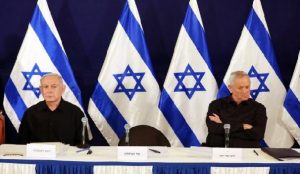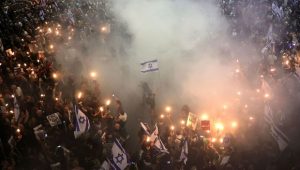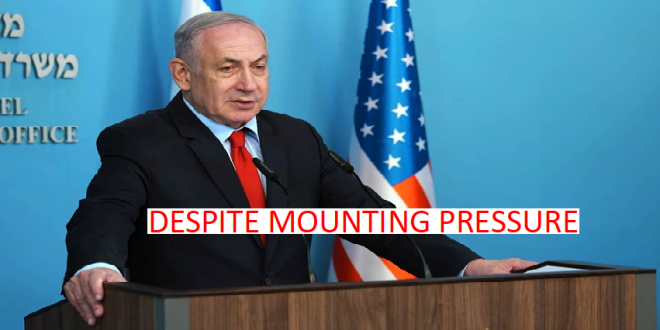08-04-2024
KIGALI: Rwandans are marking 30 years since a genocide orchestrated by armed Hutu tore apart their country, as neighbors turned on each other in one of the bloodiest massacres of the 20th century.
President Paul Kagame led the commemoration on Sunday by placing wreaths on the mass graves in the capital, Kigali, flanked by foreign dignitaries, including the leaders of South Africa and Ethiopia as well as former US President Bill Clinton, who had called the genocide the biggest failure of his administration.
 The killing spree, which began on April 7, 1994, lasted 100 days before the Rwandan Patriotic Front (RPF) rebel militia took Kigali in July of the year, and saw some 800,000 people dead, largely Tutsis but also moderate Hutus.
The killing spree, which began on April 7, 1994, lasted 100 days before the Rwandan Patriotic Front (RPF) rebel militia took Kigali in July of the year, and saw some 800,000 people dead, largely Tutsis but also moderate Hutus.
The assassination of Hutu President Juvenal Habyarimana on the night of April 6, when his plane was shot down over Kigali, triggered the rampage by armed Hutu men and the “Interahamwe” militia.
Their victims were shot, beaten or hacked to death in killings fuelled by vicious anti-Tutsi propaganda broadcast on TV and radio. At least 250,000 women were raped, according to the United Nations figures.
The tiny nation has since found its footing under the rule of Kagame, who led the RPF, but the scars of the violence remain, leaving a trail of destruction across Africa’s Great Lakes region.
Journalist Stefanie Dekker, reporting from Kigali, said 30 years after the mass killings, the pain is still evident among many Rwandans but “they also feel that it is every Rwandan’s responsibility to commemorate the genocide, to remember what happened and to ensure that it will never happen again,” she said.
The international community’s failure to intervene has been a cause of lingering shame, with French President Emmanuel Macron expected to release a message on Sunday saying that France and its Western and African allies “could have stopped” the bloodshed but lacked the will to do so.
 Sunday’s events mark the start of a week of national mourning, with Rwanda effectively coming to a standstill and national flags flown at half-mast.
Sunday’s events mark the start of a week of national mourning, with Rwanda effectively coming to a standstill and national flags flown at half-mast.
In keeping with tradition, Kagame also lighted a remembrance flame at the Kigali Genocide Memorial, where more than 250,000 victims are believed to be buried. He is also expected to deliver a speech later in the day. He was accompanied by the first lady, Jeannette Kagame.
Music will not be allowed in public places or on the radio, while sports events and movies are banned from TV broadcasts unless connected to what has been dubbed “Kwibuka (Remembrance) 30”.
The UN and the African Union will also hold remembrance ceremonies.
Karel Kovanda, a former Czech diplomat who was the first UN ambassador to publicly call the events of 1994 a genocide, nearly a month after the killings began, said the massacres should never be forgotten.
“The page cannot be turned,” he told media in an interview in Kigali, urging efforts to ensure that “the genocide (doesn’t) slip into oblivion”.
Each year, new mass graves are still being uncovered around the country.
According to Rwanda, hundreds of genocide suspects remain at large, including in neighboring nations such as the Democratic Republic of the Congo and Uganda.
(Int’l Monitoring Desk)
 Pressmediaofindia
Pressmediaofindia




